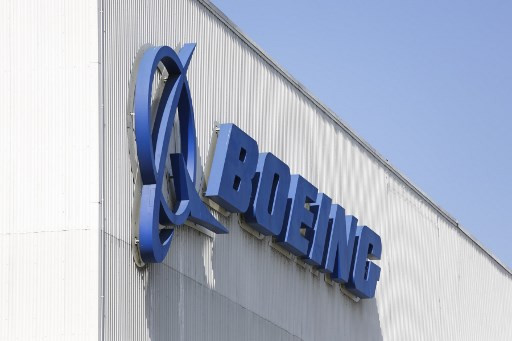Popular Reads
Top Results
Can't find what you're looking for?
View all search resultsPopular Reads
Top Results
Can't find what you're looking for?
View all search resultsBoeing addresses passengers' concerns with filtration system
The company is promoting cabin safety after social restrictions to contain COVID-19 hit the aviation industry, forcing people to cancel travel plans.
Change text size
Gift Premium Articles
to Anyone
A
merican aircraft manufacturer Boeing aims to alleviate passengers’ health concerns by promoting the cabin ventilation and filtration systems on its planes, claimed to be able to kill viruses, as the aviation industry seeks to revive demand battered by COVID-19.
Boeing product marketing director Jim Haas told The Jakarta Post on Wednesday that all new Boeing models were equipped with high-efficiency particulate air (HEPA) filters, while they could also fit filters on older airplanes.
The circulation system on its planes has vertical airflow that prevents droplets from spreading.
“The air is also exchanged every two to three minutes, faster than in office buildings and even in most hospitals. Some of the air is recirculated and it goes to a HEPA filter that is extremely efficient in removing viruses out of the air,” he said during an online press conference.
The company is promoting its cabin safety after social restrictions to contain COVID-19 hit the aviation industry, forcing people to cancel travel plans. The International Air Transport Association (IATA) estimates a 49 percent drop in passenger numbers and an $8.2 billion decrease in revenue for the Indonesian airline industry this year.
However, Haas says airlines should still disinfect their cabins frequently. The company has provided a guideline for airlines on how to clean the airplane’s cabin and flight deck.
Passengers and aircrew should also wear face masks during the flight, he added, although the company said airlines did not need to block off the middle seat.
“As long as [protective] actions are taken, we don’t see the need to block middle seats,” he said.
National airlines have rearranged seating configuration on flights to maintain physical distance between passengers. The measure is based on a recently issued aviation health protocol by the Transportation Ministry that details measures to maintain health and safety. The regulation also allows passenger numbers per flight to reach 70 percent of the aircraft’s capacity.
However, a 2012 study led by Qingyan Chen from Airliner Cabin Environment Research (ACER) also shows that small droplets exhaled from a passenger’s cough could stay in the cabin for about four minutes before being extracted by the ventilation system.
“Most of the droplets were transported within one row of the index patient in the first 30 seconds and then could be transported to the entire seven-row cabin with uniform droplet distribution in four minutes,” the study reads.
Earlier in May, Boeing's global competitor, Airbus, also touted its ventilation system, which uses hospital-grade HEPA air filters, according to the company's presentation released in May.
Airbus cabin airflow is also vertical, preventing droplets from circulating.
Indonesian National Air Carrier Association (INACA) chairman Denon Prawiratmadja told the Post that national airlines were in compliance with the International Civil Aviation Organizations’ (ICAO) guidelines and Transportation Ministry’s regulations, and not Boeing’s guidelines, in maintaining airplanes' hygiene and sanitation.
“We don’t follow guidelines set by airplane manufacturers,but rather those published by the ICAO and the government,” he said in a phone interview.
He further said that Indonesian airlines would continue to implement seat blocking in accordance with government regulation.
“Both the ICAO and Boeing have released similar statements saying that physical distancing isn’t effective inside an airplane. However, our consumers are still wary of flying and we decided to implement seat blocking to give our passengers assurance,” he said.










